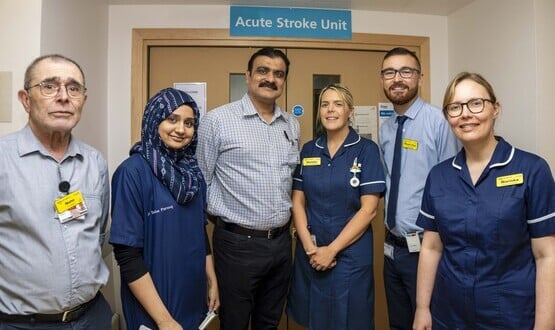IT issues causes 22,000 undelivered letters at Worcestershire Acute
- 23 August 2017

Tens of thousands of patient letters have been undelivered to GPs from one acute trust, due to an IT issue.
Worcestershire Acute Hospitals NHS Trust revealed on 9 August it was aware of the backlog of 22,000 letters that should have been delivered to GPs.
The clinical correspondence dates from 2011 to 2017 and contains information saying if follow up care was required after the patients had visited the hospital.
In a statement from the trust it explained that an initial review found 11,000 requiring no further action and the remaining 11,000 will be urgently reviewed. A trust investigation is underway.
Michelle McKay, chief executive at the trust, apologised for the error and sought to reassure patients.
“We are sorry that some letters within the trust’s document management system have not been processed properly. We regret that this means some patients may not have received the follow-up care they should have.”
“This is a serious issue which we are working hard to quickly address, however it is important we reassure our local communities that more than half a million patients are seen in our outpatient departments each year and the vast majority of these patients will have had the appropriate letters sent to ensure they receive the right follow-up care.”
It is estimated the trust will finish the review by the end of September.
The trust did not answer questions on whether any patient harm had been identified or what the IT issue was before publication.
There have been several high profile incidents with undelivered clinical correspondence this year.
In June, health secretary Jeremy Hunt, was grilled in the House of Commons about a blunder that saw 709,000 items of medical correspondence undelivered.
At least 1,700 cases of potential patient harm have been identified, with investigations continuing.
In May, nearly 15,000 patient records at Sheffield Teaching Hospitals NHS Trust were affected by a technical mishap in the trust’s Lorenzo patient administration system (PAS).
The PAS had generated fault that resulted in patient letters being generated, but then failing to be printed. The failure resulted in some patients not receiving letters referring them for further appointments.
Worcestershire provides its care from three main hospital sites, and employs nearly 6,000 people.





2 Comments
What boggles me is: why are GPs so negligent that they don’t chase up the hospital when they do not receive a follow-up letter from the hospital? And why don’t the patients kick up a fuss, when they do not hear from their GP what their follow-up treatment is?
I, a stroppy patient, always scream blue murder if I don’t see a copy of a discharge letter within a week of my hospital treatment. Am I a freak?
I think it is unacceptable not to divulge what the IT issue was on the basis that this may affect other hospitals using the same software.
Comments are closed.